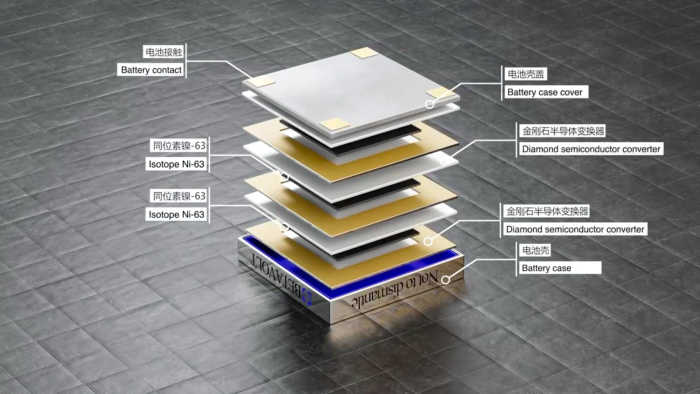Published 15:04 IST, January 21st 2024
The BV100 is not only known for its extended lifespan but also for its exceptional performance under extreme conditions.
Advertisement
BV100 Betavolt innovation: Beijing-based startup Betavolt Technology has introduced the BV100, a nuclear-powered battery that promises an unprecedented 50-year lifespan without the need for recharging. The miniature atomic energy battery, smaller than a coin, harnesses the energy released by nuclear isotopes and utilises semiconductors to convert it into electrical power.
Unmatched performance under extreme conditions

The BV100 is not only known for its extended lifespan but also for its exceptional performance under extreme conditions. Unlike traditional batteries, this nuclear-powered innovation operates safely in temperatures ranging from 120 to minus 60 degrees Celsius (248 to minus 76 Fahrenheit) and is resistant to punctures and gunfire without the risk of catching fire or exploding, as reported by Science and Technology Daily.
Advertisement
Versatile applications and military use
Apart from general civillian use, industry experts highlight the potential military applications of the BV100. Continuous power supply for flying drones and long-term power requirements for deep-sea monitoring devices in extreme conditions are among the possible applications. The BV100 could revolutionise the field by enabling devices like smartphones to operate indefinitely without recharging.
Nuclear battery technology
The BV100 utilises betavoltaic technology, generating an electric current directly from beta particles emitted from a radioactive source, in this case, nickel-63. A unique single-crystal diamond semiconductor, developed by Betavolt researchers, enhances energy conversion efficiency. The battery boasts a modular structure, allowing researchers to configure power outputs ranging from a few microwatts to several watts by connecting multiple modules.
Advertisement
Historical perspective
The underlying principle of nuclear batteries dates back to 1913, with British physicist Henry Moseley's proposal of isotope technology. Betavolt's BV100 utilises nickel-63 as its radiation source, ensuring operational efficiency throughout its 50-year lifespan.
Addressing concerns and future plans
Despite the promising potential, challenges exist in designing nuclear batteries for small electronic devices. Concerns include nuclear safety, radiation protection, and potential damage to semiconductors. Betavolt, however, plans to address these concerns and record and recycle each BV100 after it enters the market, ensuring responsible disposal.
Advertisement
Betavolt aims to mass-produce the BV100 by the end of the year and introduce a 1-watt version in the following year. With an energy conversion efficiency of 8.8%, the company sees potential improvements using higher-purity nickel-63 radiation sources.
Future outlook and industry response
The BV100's unprecedented 50-year charge cycle opens up new possibilities for various applications, including AI equipment, medical devices, drones, and more. As the world eagerly anticipates the commercial release of the BV100, Betavolt's innovation has the potential to revolutionise how electronic devices approach sustainability and longevity, marking a significant milestone in the world of energy storage technology.
Advertisement
15:01 IST, January 21st 2024